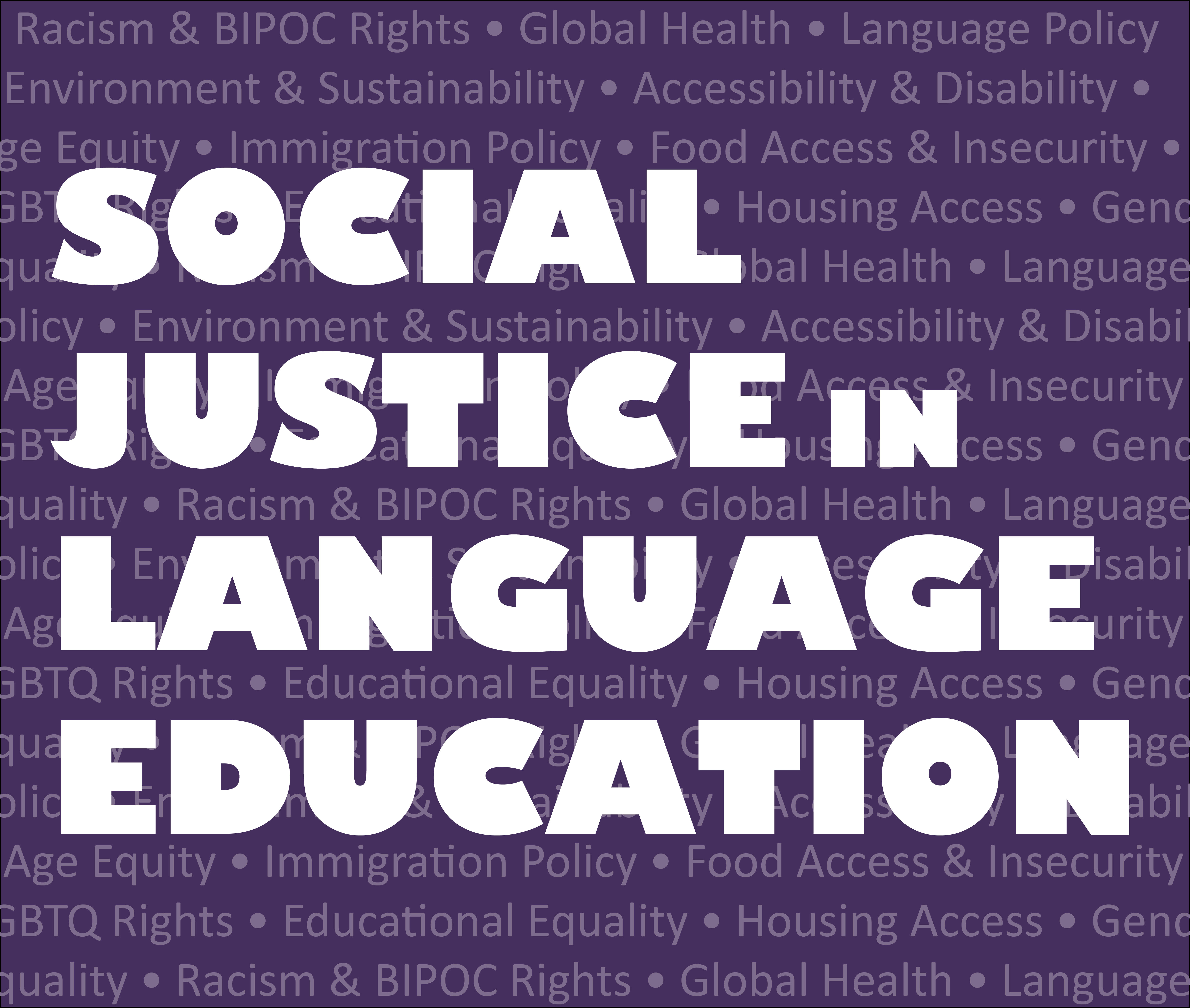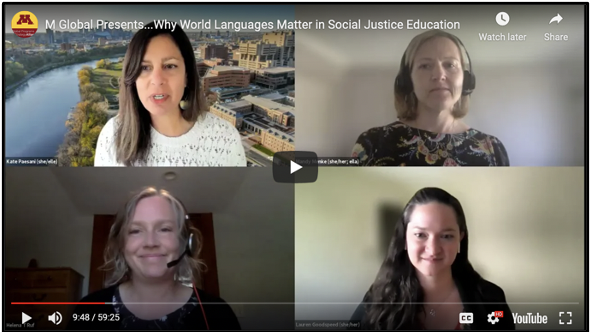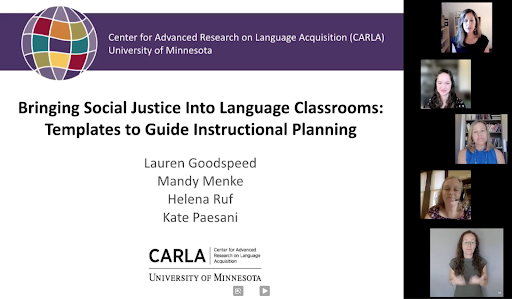
Social Justice in Language Education
CARLA's Social Justice in Language Education project will create instructional materials that address a wide range of social justice topics in ten languages. Grounded in multiliteracies pedagogy, these materials will improve students language abilities, intercultural understanding, and career competencies through critical engagement with target language texts.
Social SCILS—Social Justice in Language Education: Strengthening Career Competencies, Intercultural Understanding, and Language Proficiency through Specialized Materials
CARLA’s Social SCILS project will develop and publish a suite of materials that address critical social justice topics (e.g., racism, global health, language policy, environmental sustainability) in Arabic, Chinese, Dutch, French, German, Portuguese, Russian, Spanish, and Turkish. Grounded in multiliteracies pedagogy, an approach proven to improve students’ language abilities through critical engagement with target language texts, the Social SCILS materials will:
- develop students’ oral and written language proficiency and prepare them to communicate in personal, academic, and professional contexts;
- encourage complex intercultural understanding of social justice topics and how they are addressed through languages and across cultures; and
- foster the core career competencies of critical thinking, creative problem-solving, ethical reasoning and decision making, and engagement with diversity.
To meet these objectives, the following Social SCILS materials will be created and posted on the CARLA website:
- A template for creating social justice curricular units across languages and levels;
- Twenty social justice curricular units comprised of target language texts, daily lessons, assessments, and grading rubrics for intermediate-level learners in ten languages;
- A curated bibliography of practical and scholarly resources on discipline- and language-specific social justice topics;
- A searchable database of over 500 written, audio, and audiovisual texts on social justice topics from the cultures where the project’s languages are spoken; and
- Two webinars, one orienting teachers to the template and one explaining how the curricular units can be integrated and used in intermediate language courses.
The template and curricular units will be published as open educational resources (OERs) and will thus be adaptable to fit the needs of language learners in any teaching context. Created over a three-year period using an ongoing process of piloting and revision, the collection of Social SCILS materials will have the potential to impact the content of language courses, the ways in which students engage with that content, and students’ development as engaged, empathetic, and aware members of society.
Social Justice and Language Education Presentations
 Leaders of the Social SCILS grant held a virtual discussion of questions related to the intersection of language and social justice in May 2021. They addressed the questions: What are the goals of language education in the 21st century? How does the study of languages help us understand different viewpoints? When is language a barrier to social justice efforts?
Leaders of the Social SCILS grant held a virtual discussion of questions related to the intersection of language and social justice in May 2021. They addressed the questions: What are the goals of language education in the 21st century? How does the study of languages help us understand different viewpoints? When is language a barrier to social justice efforts?
Watch a recording of Why World Languages Matter in Social Justice Education.
 In September 2021, the Social SCILS project leaders described the process of developing research-based curricular unit and lesson plan templates that support language instructors in the teaching of social justice themes. They explained the collaborative and iterative process that informed this work, described the templates and their use to create intermediate-level curricular units in nine languages, and addressed plans for dissemination and teacher professional development.
In September 2021, the Social SCILS project leaders described the process of developing research-based curricular unit and lesson plan templates that support language instructors in the teaching of social justice themes. They explained the collaborative and iterative process that informed this work, described the templates and their use to create intermediate-level curricular units in nine languages, and addressed plans for dissemination and teacher professional development.
Watch a recording of Bringing Social Justice into Language Classes: Templates to Guide Instructional Planning.
Funding Source
Social SCILS is funded by the U.S. Department of Education’s Title VI International Research and Studies Program (IRSP) to address the IRSP competitive preference priority of developing and publishing specialized materials for foreign language instruction. By creating multiliteracies instructional materials on social justice topics in ten languages, the project will strengthen instruction and curriculum development in U.S. language programs; respond to the national need for individuals with expertise and competence in world languages; contribute to developing a globally competent workforce; expand access to foreign language learning through OERs; and support the teaching of critical world languages and issues.
CARLA Summer Institutes for Language Teachers
Each summer CARLA offers a wide array of professional development opportunities for K-16 language teachers.CARLA Bibliography
The CARLA bibliography contains more information on publications and presentations by faculty and staff involved in the Social Justice in Language Education project.
